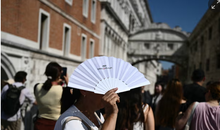
 Flash News
Flash News
Korça/ 40-year-old man jumps from fifth floor balcony, in critical condition
Croatia restores compulsory military service
Illegal constructions in Theth, Manja demands disciplinary proceedings against prosecutor Elsa Gjeli
Details from the murder of Renis Dobra, the perpetrators came with 2 Range Rover cars from Rrëshen
The Supreme Court left him in prison, Meta addresses the 'Constitution'
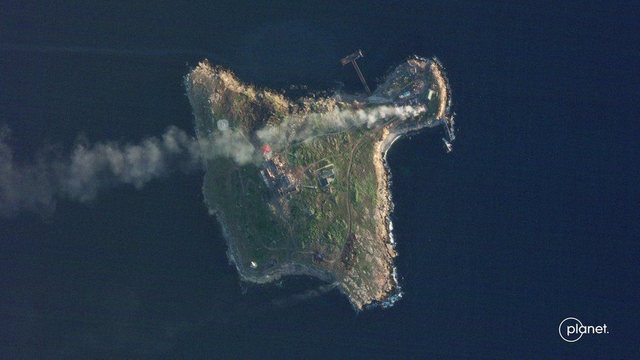

This small rocky outcrop in the north-west of the Black Sea was occupied by Russia on the first day of its occupation of Ukraine and has since played a major role in the war.
After more than four months of repeated Ukrainian bombing, Russian forces have abandoned the island of Snake or Zmiinyi, as it is known in Ukraine.
Russia says it withdrew its garrison as a "gesture of goodwill" to prove it was not hampering grain exports, but Ukraine denied the claim as Moscow continued to bomb its grain stores.
Hard to defend
The island is exposed to attacks from all directions by air and sea, and the small garrison tasked with protecting it - initially Ukrainian and later Russian - has been described as "sitting ducks" by military experts.
Captured by the Russians on February 24, Snake Island is located just 35 km (22 miles) off the coast of Ukraine - well within range of rocket, artillery and drone strikes from the coast.
And the Ukrainian armed forces have done just that, claiming a series of devastating attacks on the island itself and any ship that brings troop deployments and heavy weapons.
In April, Russia 's anti - aircraft capabilities northwest of the Black Sea were significantly weakened by the sinking of Moscow, the flag of its Black Sea Fleet.
Kjo shpjegon pse Kremlini ishte kaq i dëshpëruar për të sjellë sisteme kundërajrore dhe luftë radio-elektronike në ishullin e gjarpërinjve. Por u bë një makth logjistik për Rusinë për t'u mbrojtur, sepse ishte shumë larg nga bazat e saj kryesore detare në Detin e Zi.
Me gjithë sulmet e saj, Ukraina ka kapacitet shumë të kufizuar detar, kështu që nuk ka qenë në gjendje të zbarkojë forcat e saj në ishull.
Analisti ushtarak ukrainas Oleh Zhdanov argumenton se vendosja e trupave në ishullin e gjarpërinjve nuk ka kuptim për asnjërën palë, pasi ato do të bëheshin një objektiv i lehtë. Në vend të kësaj, z. Zhdanov mbron krijimin e "kontrollit të zjarrit" - ruajtjen e aftësisë për të goditur çdo objektiv që i afrohet ishullit.
Kjo do t'i jepte gjithashtu një siguri më të madhe portit më të madh të Ukrainës në Detin e Zi, Odesa, dhe të gjithë sektorit veriperëndimor të Detit të Zi.
Një 'shkëmb' i rëndësishëm
Rusia tashmë kontrollon një pjesë të madhe të bregut të Detit të Zi të Ukrainës, plus Gadishullin e Krimesë dhe të gjithë Detin Azov. Mbajtja e ishullit të gjarpërinjve përfundoi një bllokadë efektive të Odesës dhe do të thoshte se eksportet e shumicës dërrmuese të grurit ukrainas ishin të pamundura.
Kjo do të thoshte gjithashtu se bregu i Detit të Zi u bë gjithashtu i prekshëm ndaj sulmeve dhe ekspertët ushtarakë në Kiev shprehën frikën se Rusia mund të instalonte mbrojtje ajrore me rreze të gjatë, si një sistem raketor ajror S-400.
A look at the map also shows that Russian control of the island posed a threat to NATO member Romania - both its key port of Constanta and traffic at the mouth of the Danube River.
It is not only strategically important - this area is also rich in oil and gas reserves.
Latest news


Malltezi: SPAK admits, we are in a process that began with Balla's false report
2025-07-10 22:34:16

Si të çliroheni nga bllokimet emocionale me anë të ushtrimeve
2025-07-10 21:57:24

Lala: Veliaj wanted to return as mayor
2025-07-10 21:40:46

VIDEO/ Brawl in Bolivian parliament, deputies physically clash
2025-07-10 21:20:30


Albania experienced one of the longest heat waves of the last decade
2025-07-10 21:01:09

The Government approves new procedures for declaring residence in e-Albania
2025-07-10 20:39:32

Koka: Northerners will not forget Edi Rama's racist operation in Theth
2025-07-10 20:18:24
The 3 zodiac signs that will be most affected by the 'Full Moon' of July 10
2025-07-10 20:04:49
New director of the National Center of Cinematography appointed
2025-07-10 19:51:12
Korça/ 40-year-old man jumps from fifth floor balcony, in critical condition
2025-07-10 19:40:19
'Tired Woman'/ The Syndrome That Affects Thousands of Women Every Day
2025-07-10 19:34:02
Jane Birkin's original Hermès bag sells for $10 million
2025-07-10 19:26:22

Britain-Ukraine agreement signed for 5,000 Thales missiles
2025-07-10 19:00:25
Fire in Zvërnec, flames endanger two hotels
2025-07-10 18:57:19
Croatia restores compulsory military service
2025-07-10 18:39:01
Spahia: The great truth of the strong accusation of the residents of Theth
2025-07-10 18:35:07


The Supreme Court left him in prison, Meta addresses the 'Constitution'
2025-07-10 17:57:21
New punishment with 'new' regulations
2025-07-10 17:54:46
EU translator fired over fears for Zelenskyy's safety
2025-07-10 17:45:37
'You are a policeman, but not God, take my soul', protest for Agon Zejnullahu
2025-07-10 17:41:21


Video/ Rama repeats the scenario, kneels before Meloni again
2025-07-10 16:56:31
He set fire to a plot of olive trees, 50-year-old man arrested in Shijak
2025-07-10 16:46:19

Rubio: US and Russia have exchanged new ideas for Ukraine peace talks
2025-07-10 16:36:20
Death of 27-year-old, Lipjan Police Commander Resigns
2025-07-10 16:21:28
Video/ An apartment burns in Tirana near the New Bazaar
2025-07-10 16:09:36


Jensila lights up the internet with her birthday greetings to Ledri
2025-07-10 15:42:08
They're full of pesticides! List of 12 products we need to be careful of
2025-07-10 15:31:04

Worker falls from scaffolding in Shëngjin, urgently sent to Trauma
2025-07-10 15:11:03
Malltezi: Within one day they seized my accounts, properties and shares
2025-07-10 15:01:23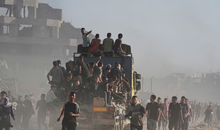
EU: Israel has agreed to more aid to Gaza
2025-07-10 14:55:19

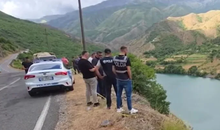
Murder of Reni Dobra, 23-year-old's vehicle pulled from the water
2025-07-10 14:29:23
Trump's tariffs on Brazil raise coffee prices
2025-07-10 14:16:07
Ursula von der Leyen survives no-confidence vote
2025-07-10 14:04:27

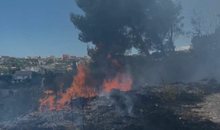
Fire in Lezha, flames near electrical substation
2025-07-10 13:32:24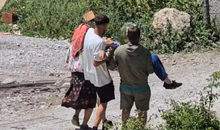
Residents clash with police in Theth, a woman faints
2025-07-10 13:24:38
"Rama and Xanun"
2025-07-10 13:15:46

Zodiac signs most likely to get divorced in July 2025
2025-07-10 12:45:51
A scapegoat for an illegitimate Republic
2025-07-10 12:35:02
"He has devastated his own nation"/ Berisha: Rama imprisons his opponents!
2025-07-10 12:26:54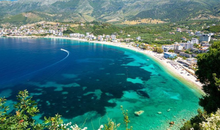

Albanian man injured with knife in Italy
2025-07-10 12:08:55



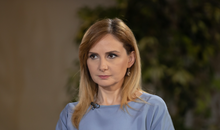


23-year-old in Mat drowned with rope, 4 suspects are being held
2025-07-10 10:58:53
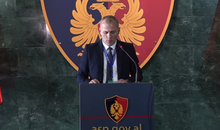
After the dismissals, the new director of the Shkodra Police is appointed
2025-07-10 10:30:10
BIRN: Rama's action for public spaces, a repeated spectacle
2025-07-10 10:29:11
Action in Theth, Shkodra Police leaders dismissed
2025-07-10 10:16:28
Fatal accident on the Tirana-Durres highway
2025-07-10 10:01:58
The incinerator does not exist, but the government continues to increase funds
2025-07-10 09:51:45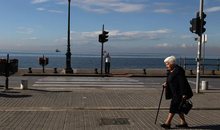
Albania is aging at a rapid pace! 30% of the population is over 60 years old
2025-07-10 09:46:23
End of an era, Modric says 'goodbye' to Real Madrid
2025-07-10 09:36:09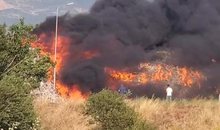
Mount Dukat has been on fire for 6 days, residents request air intervention
2025-07-10 09:27:24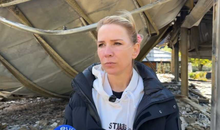

"Poverty on the rise"/ DW: Many people in Germany are not getting paid
2025-07-10 09:08:06
Horoscope, what do the stars have in store for you today?
2025-07-10 08:51:59

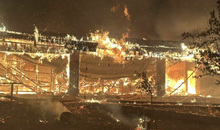
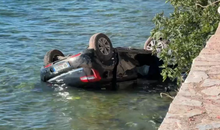

The scorching heat returns, the thermometer climbs to 40°C
2025-07-10 07:58:52
Morning Post/ In 2 lines: What mattered yesterday in Albania
2025-07-10 07:46:35
Tourist operator in Theth: They are demolishing our houses without warning
2025-07-09 22:54:57

Trump and Israeli commander warn: Gaza ceasefire could be near
2025-07-09 22:13:21
Fire in Elbasan Landfill, pedagogue: It is a cancer and environmental crime
2025-07-09 21:54:47

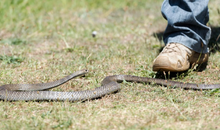
Dangerous summer, number of snake bites increases
2025-07-09 21:22:13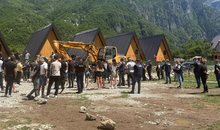
Berisha appeals again: Stop state terror against the residents of Theth!
2025-07-09 21:15:36
'Kissing disease' virus linked to several forms of cancer
2025-07-09 21:04:44
Malltezi confesses after release: Justice has become a political weapon
2025-07-09 20:51:48
Vokshi: Albania's EU integration has stalled due to lack of free elections
2025-07-09 20:37:21